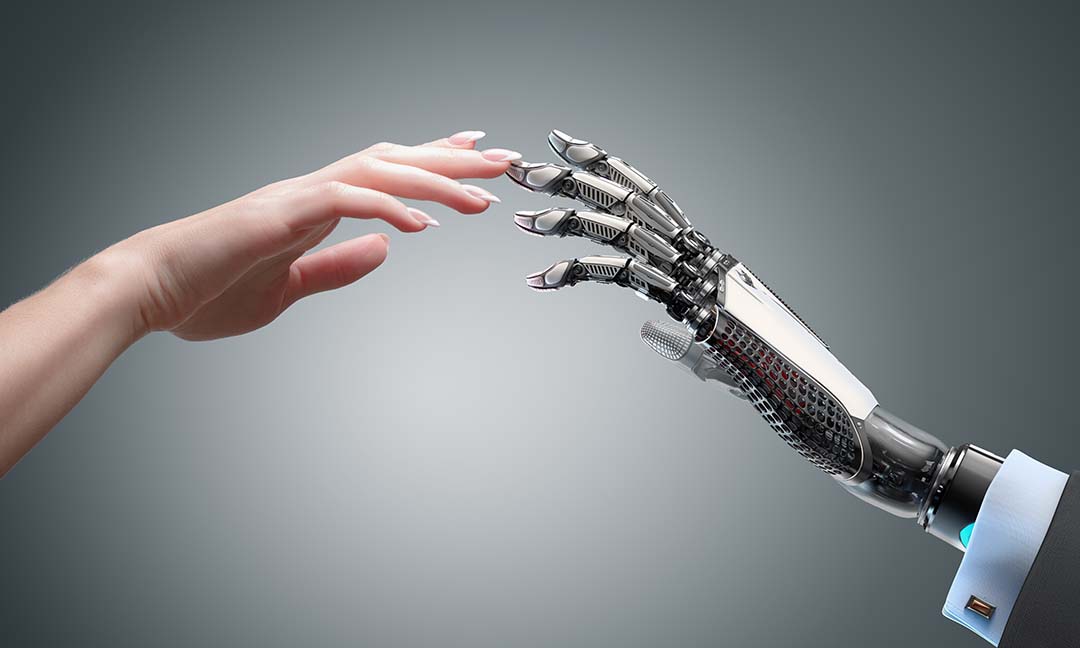Cyborg Detection: What to Look for

Cyborg are frequently represented as human-machine hybrids in popular fiction. They’ll either be robots with human brains or people who’ve had some of their limbs replaced with machine parts. That’s very cool. But, let’s be honest: those are your grandparent’s cyborgs. Ours is better.
In the present world, the thought of inserting a computer chip into your brain isn’t far-fetched at all. And robotic limbs are soon becoming a reality. But neither of these cybernetic systems are meant to augment healthy people.
For non-medical cybernetic applications, the ultimate goal of human-machine hybrids should be optimization. It might be very great to have robotic arms that can bend steel but, arguably, there are better methods to accomplish such feats than to graft metal to your flesh.
Experts say that the development of always-on internet connectivity and technologies such as Google Search, Wikipedia, and YouTube have spawned an altogether new species of humans.
Rather than a physiological development, such as that our ancestors went through on their way out of the waters, into the woods, and ultimately walking upright, we’re undergoing a technology-induced separation of the species.
Potentially, homo-sapiens are a critically endangered species. Most humans interface with the internet via smartphones or computers on a regular basis. Eventually, practically every person on Earth will have always-on connectivity to the internet via a personal gadget.
And, when that happens, homo-sapiens will become something else. Homo-sapien 2.0 possibly. Or maybe something else entirely, it’s highly plausible we’ll see physiological changes to our brains as we continue to merge our mental space with computers.
Many humans are already cyborgs. If you take everything that’s amazing about RoboCop and then add “what if we made it wireless instead,” what you get is a cop with an iPhone and a smart gun.
This is because the modern meaning of cyborgs involves the idea of using computers as an extension of our own minds.
Think about it: how many phone numbers do you have memorized? Probably not as many as you would have in the 1990s.
For most of us, this is because we’ve let our technology lighten our mental load. Why memorize phone numbers when our phones can do it for us?
As Slate’s Will Oremus pointed out back in 2018, this is actually by design:
Google is now begging you to accept its software as part of your extended mind, in all kinds of new ways. It claims to think for you, talk for you, and carry out acts in the actual world on your behalf.
One need looks no further than social media to witness a clear portrayal of both cyborgs and old-school homo-sapiens engaging with one another.
When we advise individuals to “Google it,” we’re asking them to use their easily available cybernetic augmentations to access the hive mind in order to save time. We’re aiming to optimize the human race. Because we’re cyborgs.
However, not everyone is a cyborg. Homo-sapiens generally pick human connection over a Google Search since they’re genuinely curious about other people’s ideas.
Perhaps they’re not interested in feeling like a cloud-connected, boring version of RoboCop who calls his Tesla with an app and runs his home via Amazon Alexa.
Only future historians will have the correct perspective from which to announce the beginning of the cyborg era. But we’re going to go ahead and say that it’s already begun. Googling celebrity birthdays and using a calculator app might not make you feel like a badass cyborg, but the sheer amount of information available to humans in the current world is unfathomable.
You could live a thousand lifetimes and never learn everything there is to know on the internet. And that makes being able to find what you’re looking for on the internet quickly a life skill that will likely only grow in relevance.
Those of us capable of embracing our technology to the fullest, who commit to the cyborg paradigm, stand to gain the most. We’ll be always-connected, cutting-edge, and able to stay a step ahead of the unevolved homo-sapiens. At least until the electricity goes out. At the end of the day, you don’t have to acquire property in the metaverse or own NFT memorabilia to accept modern technology.
You’re a cyborg if you rely on personal technology to accomplish your light work so you can free up your gorgeous human brain for more essential things.

Comments are closed